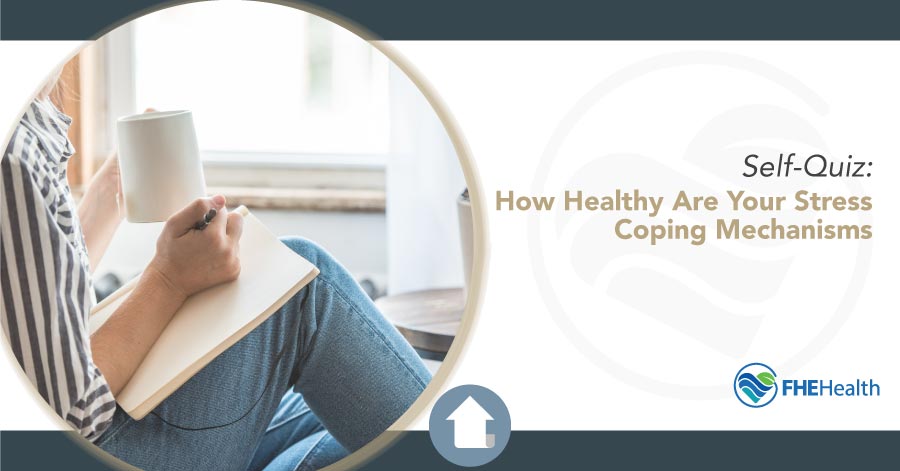
We all deal with stress. But some of us are plagued with it more than others. How you handle your stress, though, is a vital part of living a healthy life.
Are Your Coping Mechanisms Healthy?
Life naturally includes stressors. The following examples are just a few common issues that can lead to stress:
- Money woes
- Relationship problems
- Health concerns
- Parenting challenges
- Work obstacles
Most people have habits and strategies to handle their stress and anxiety — not all of them are good. Let’s examine these coping strategies and review what’s healthy and what’s problematic.
Quiz: How Do You Deal With Stress?
Signs That a Coping Mechanism Isn’t Healthy
Understanding whether your stress management techniques are healthy or harmful isn’t difficult. Look at the lasting effects of your strategies. Unhealthy mechanisms provide immediate relief, but there’s a trade-off. Over time, poor coping mechanisms become unbearable or more problematic than the stressors and underlying causes.
Consider the lasting effects of alcohol and drug abuse. Review the impact on your health, your mental state and your family members. Even seemingly innocuous activities, like higher caffeine intake and oversleeping, play a role in aggravating your issues with stress.
Healthy Coping Strategies for Stress
On the flip side, there are many constructive ways to deal with stress that provide long-term benefits. Consider these five healthy coping mechanisms.
1. Physical Activity
Go bowling. Play tennis or simply take a walk outdoors. Exercise and other types of physical activity is good for the mind, body and soul. It also helps you relax and improves your sleeping habits.
2. Meditation or Mindfulness
The practices of meditation, yoga and mindfulness are soothing activities with numerous benefits. They calm your mind, refresh your body and give you permission to slow down and rest. This counters the body’s fight-or-flight response to stress and improves physical and mental health.
3. Hobbies
Do you love gardening? Are you an aspiring chef or seamstress? Perhaps you enjoy stamp collecting or DIY projects. Whatever your joy, pursue that hobby to help fight stress and stay mentally and physically healthy.
4. Positive Outlets
Creative pursuits lessen stress, anxiety and depression. You engage your mind, improving brain function and mood. Try these activities to cope with stress:
- Journaling
- Coloring
- Drawing
- Painting
- Playing an instrument or listening to music
5. Therapeutic Intervention
For many people who suffer from chronic stress, therapeutic intervention is indicated to help overcome unhealthy coping mechanisms. Therapy provides professional mental health coping strategies that are tailored to your unique situation. They build on your strengths and help you overcome areas of weakness.
Are you worried about how you or a loved one is dealing with stress? If you’re engaging in unhealthy stress coping mechanisms, FHE Health can help. Reach out to discuss your concerns by calling (833) 596-3502.






